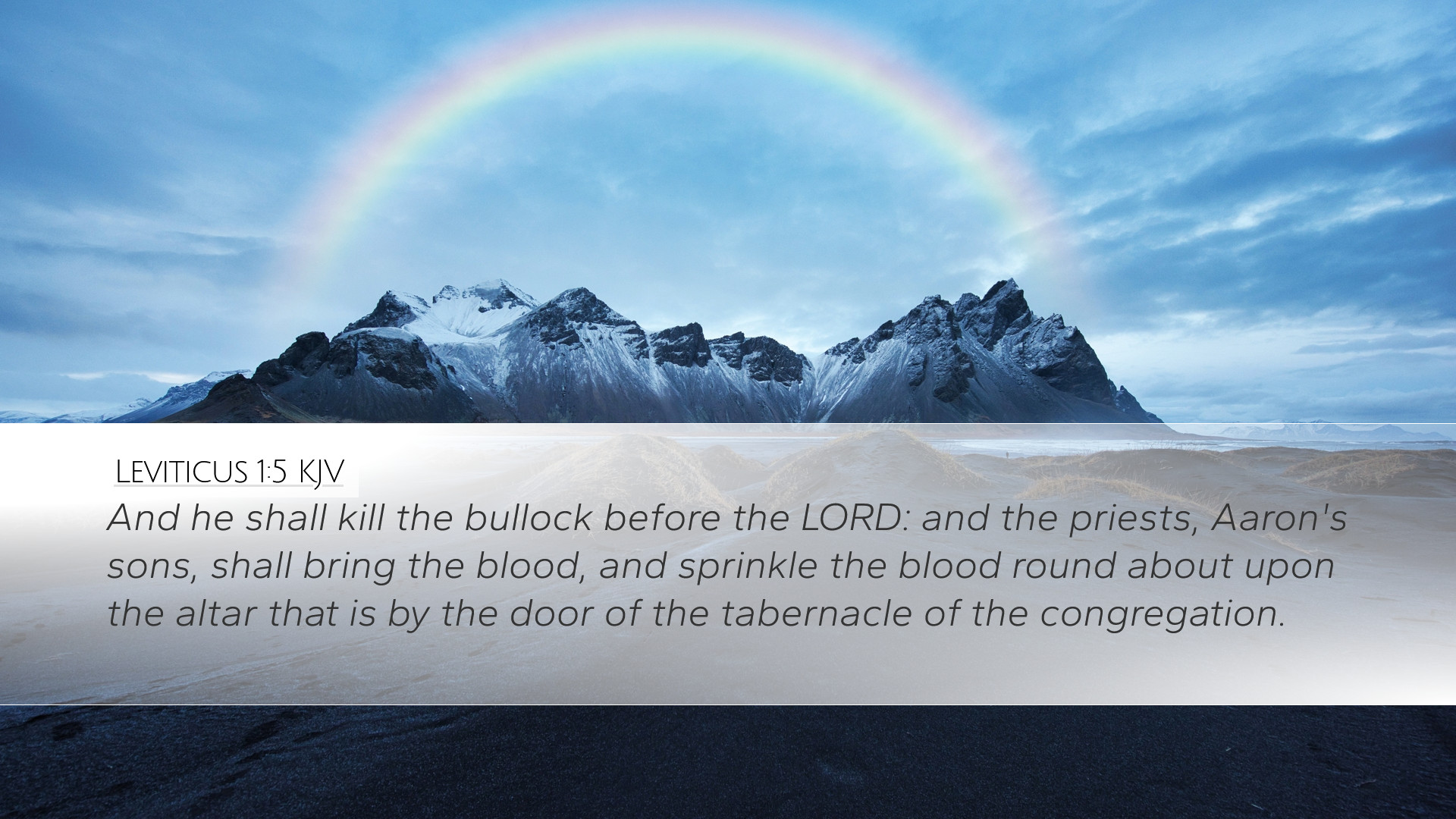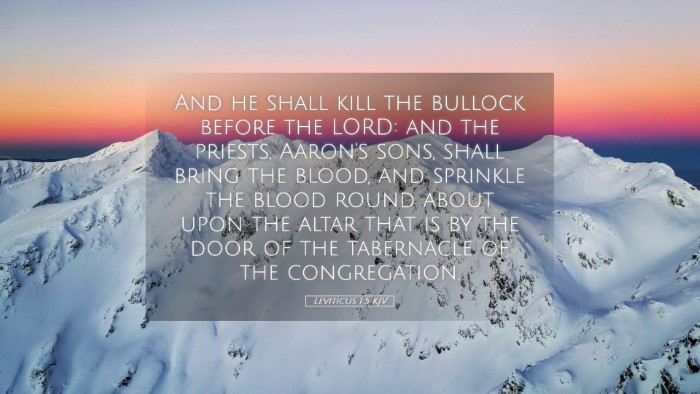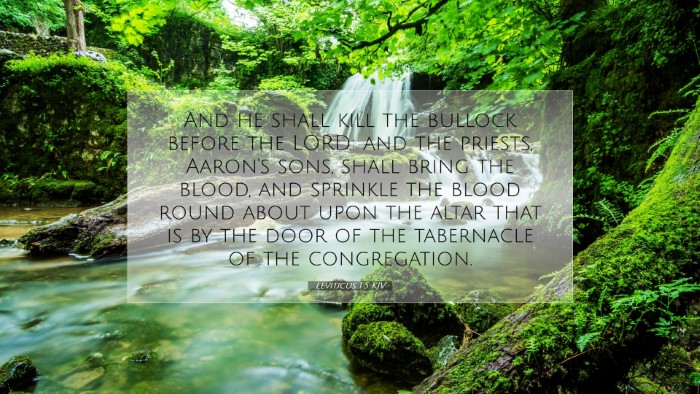Commentary on Leviticus 1:5
Bible Verse: "And he shall kill the bullock before the LORD: and the priests, Aaron's sons, shall bring the blood, and sprinkle the blood round about upon the altar that is by the door of the tabernacle of the congregation."
Introduction
The book of Leviticus stands as a vital component of the Pentateuch, laying down the laws governing the holiness of the Israelites. Leviticus 1:5 is situated within the broader context of the sacrificial system, which serves as a means of atonement and a method of expressing devotion to God. This verse specifically outlines the procedure for the sacrificial offering of a bullock, emphasizing the significance of blood in the covenant relationship between God and His people.
Analysis of Key Components
- The Act of Killing the Bullock:
The command for the individual to kill the bullock "before the LORD" introduces the solemnity and seriousness of this ritual. The act signifies a personal responsibility in sacrificial worship. As Matthew Henry notes, "This was to be done with great reverence, as the sacrifice is not merely an act of offering but a recognition of sin and a return to God."
- The Role of the Priests:
The involvement of Aaron's sons as priests denotes the mediatory role that is central to the relationship between the worshiper and God. Albert Barnes remarks that "the priests were the appointed representatives who would mediate the atonement process, illustrating the necessity of intercession in approaching the divine." Their actions transform a personal offering into a communal act of worship.
- The Significance of Blood:
Blood in the biblical context represents life and is a critical element of atonement. Adam Clarke eloquently articulates this, stating, "The shedding of blood is the requisite acknowledgement of sin, highlighting the gravity of transgressions and God’s demand for justice." The blood, sprinkled upon the altar, symbolizes divine acceptance and the purification of sin.
- The Altar of the Tabernacle:
The placement of the altar at the door of the tabernacle indicates accessibility to the worshiper while maintaining a barrier to the Holy of Holies. This positioning, as noted by Matthew Henry, "serves to remind the worshiper of both the nearness of God and the holiness that requires sacrifice." The altar is a focal point for connecting the earthly with the divine.
Theological Implications
Leviticus 1:5 provides profound theological insights relevant to today's faith practice.
- Requirement for Atonement:
The verse exemplifies the necessity of atonement, a foundational theme within Scripture that points to Christ's ultimate sacrifice. The Hebrew sacrificial system foreshadows the New Testament fulfillment in Jesus, whose shed blood redeems humanity from sin.
- The Personal Nature of Worship:
Worship is not merely a liturgical formality but an introspective act that acknowledges individual sinfulness and divine grace. The personal act of killing the bullock emphasizes the weight of sin and the earnestness required in coming before God.
- The Role of Intercession:
The function of the priests underscores the essential role of intercession within the faith community. Today, believers recognize Jesus as their High Priest, who intercedes on their behalf, providing a direct access to God via His sacrifice.
Practical Application for Today
This passage holds significant implications for contemporary worship practices and personal faith. Pastors and teachers can draw parallels between the ancient practices and modern expressions of faith, emphasizing repentance, atonement, and the necessity of understanding the sacrifice of Christ in personal and communal worship.
- Encouragement to Repent:
Leaders can encourage congregations to embrace a posture of repentance, recognizing the ongoing need for atonement and the transformative power of God’s forgiveness.
- Recognition of Christ’s Sacrifice:
In communion services, the symbolic use of bread and wine should remind believers of the blood of Jesus, connecting them to this sacrificial tradition of the Old Testament.
- The Call to Holiness:
Teaching on the necessity of holiness, as God commands, allows believers to grasp the depth of intimacy that God desires with His people, facilitating a culture of reverence in worship.
Conclusion
Leviticus 1:5 serves as a critical reminder of the seriousness of sin and the profound grace offered through sacrificial atonement. This verse connects the ancient practices of worship with the theological truths that resonate within the heart of every believer. As we reflect on this scripture, may we be drawn into deeper understanding of God’s holiness, the weight of our sins, and the boundless mercy found in Jesus Christ.


